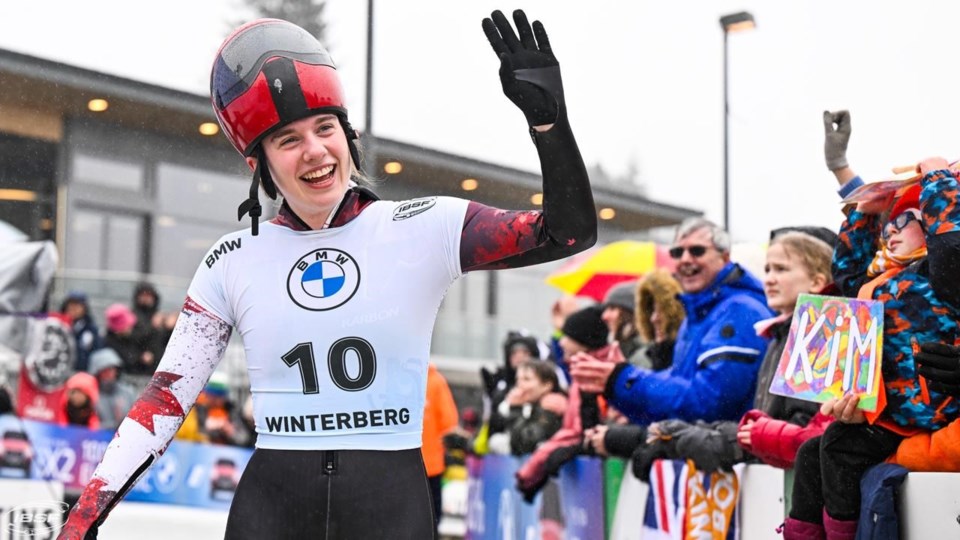WINTERBERG, Germany — Hallie Clarke found herself in an unexpected position on Friday.
Leading halfway through the women's skeleton competition at the world bobsled and skeleton championships, the 19-year-old from Brighton, Ont., was determined to enjoy her final two runs despite the pressure of the moment.
In the end, Clarke rose to the occasion and clocked a four-run time of three minutes 51.27 seconds to become the youngest skeleton world champion in history.
"One of my goals in this sport was always to be world champion, and it came a lot sooner than I thought," Clarke said.
The world title comes in Clarke's second world championship appearance, and her first for Canada after representing the United States last season.
"It’s crazy, it still feels like a dream. It was my goal today just to have fun no matter what. I never expected to be in this position," said Clarke.
"I have been very nervous, I’m still shaking from all the adrenalin, but I tried to remind myself that I love sliding and racing.“
Clarke was the surprise leader after Thursday's opening two runs. She was tied with Germany's Hannah Neise after three runs but pulled away from the pack with a final run of 56.93 seconds, the fastest time of the competition.
"There was a lot of nerves that continued into the night and the morning, but having family and all of the team around reminding me of why I do this and to have fun was very important," said Clarke, who said her mother was with her in Winterberg.
"I kept reminding myself why I started to do this in the first place – because it is fun – and no matter what happened today I had the time of my life yesterday."
Clarke joined select company among Canadian skeleton racers. Michelle Kelly is the only other Canadian woman to win a world championship, doing so in Nagano, Japan in 2003.
Three Canadian men also have won world championship titles: Jeff Pain (Calgary 2005), Duff Gibson (Konigssee, Germany 2004), and Ryan Davenport (Calgary 1996, Lake Placid, N.Y., 1997). Gibson and Pain finished one-two at the 2006 Olympic Winter Games.
“It is such an honour to have my name mentioned with this group and be a part of that history,” Clarke said. “Today really shows the direction our program is heading, and I think a big part is the support that we have here for the team.”
Kim Meylemans of Belgium finished 0.22 seconds behind Clarke to secure the silver medal, while Neise, the 2022 Olympic champion, settled for bronze, 0.26 seconds back, following a bumpy final run.
"Gold would have been nice, but it was my goal to win a medal here in front of my home crowd. Hallie simply did a mega-strong race, she totally deserved it," said Neise.
Mirela Rahneva of Ottawa, who won bronze last year at the world championships in St. Moritz, Switzerland, finished seventh in 3:51.63, while Calgary's Jane Channell was 11th in 3:52.72.
Clarke previously won the under-20 world title in Winterberg and made her world championship debut last season, finishing 10th while representing the U.S.
She also clinched silver at a World Cup stop in Whistler, B.C., in 2022.
The appointment of Joe Cecchini as Canada's head coach helped lure Clarke back north of the border. Cecchini has been her coach since she was introduced to the sport at age 14.
Calgary's Blake Enzie was the only Canadian in the men’s skeleton race. He clocked a four-run time of 3:50.27 to finish 24th.
Germany’s Christopher Grotheer won the men’s title 3:44.91.
This report by The Canadian Press was first published Feb. 23, 2024.
The Canadian Press


